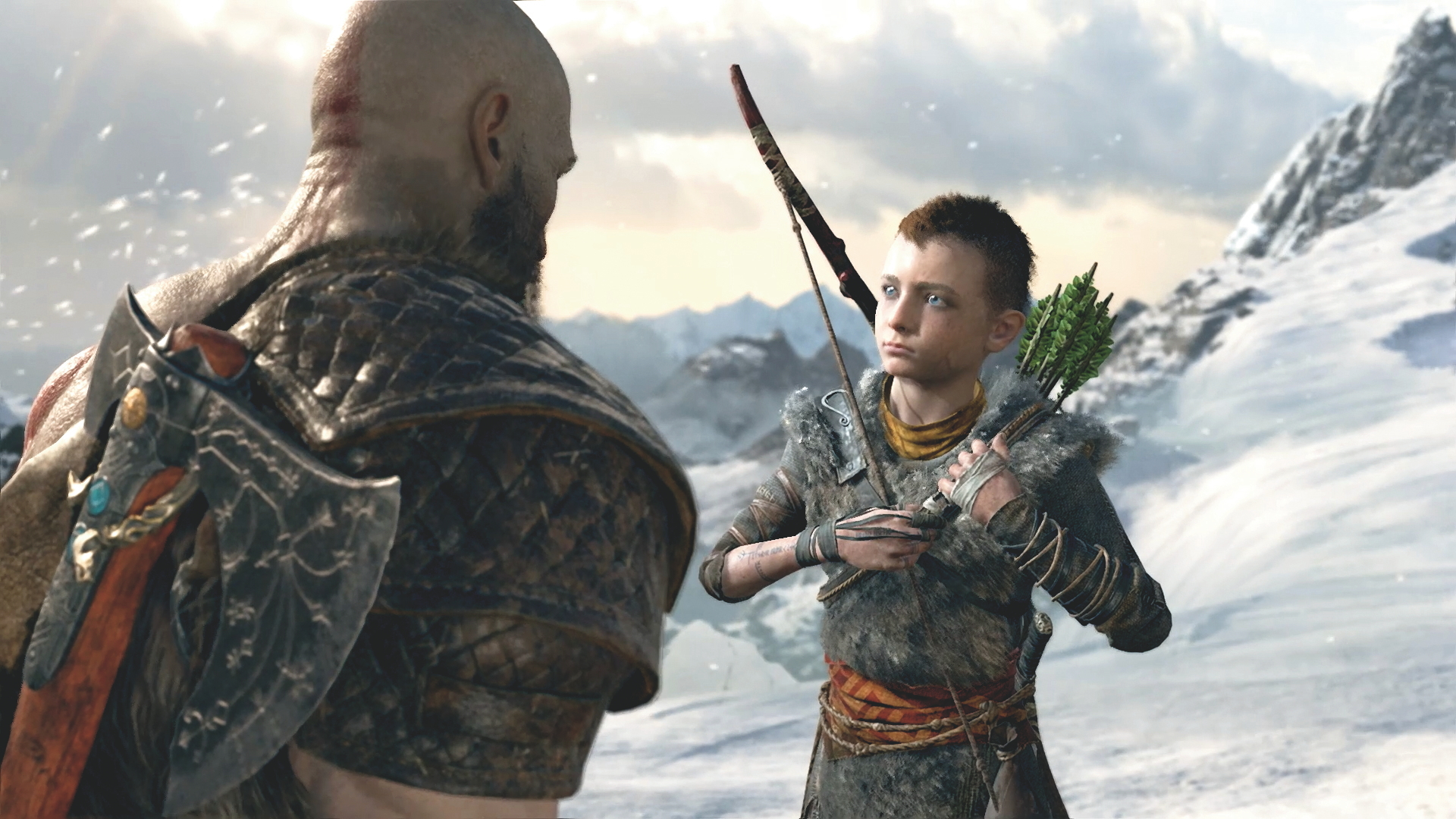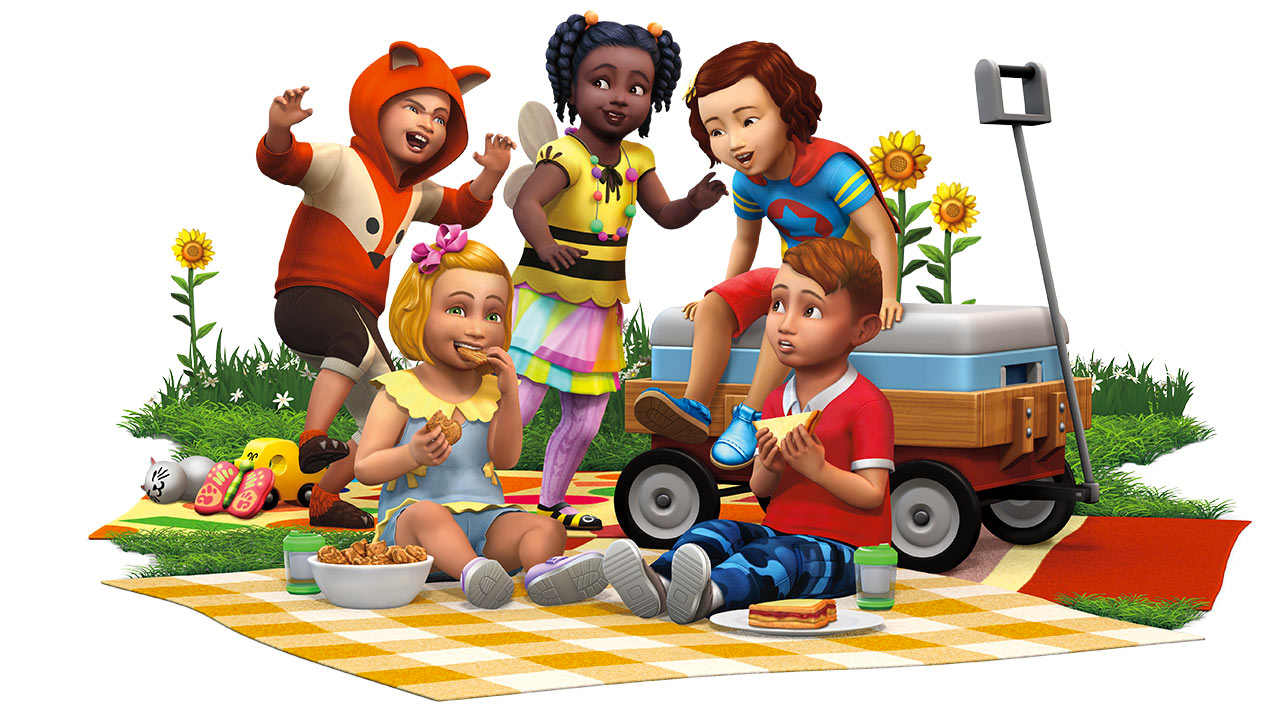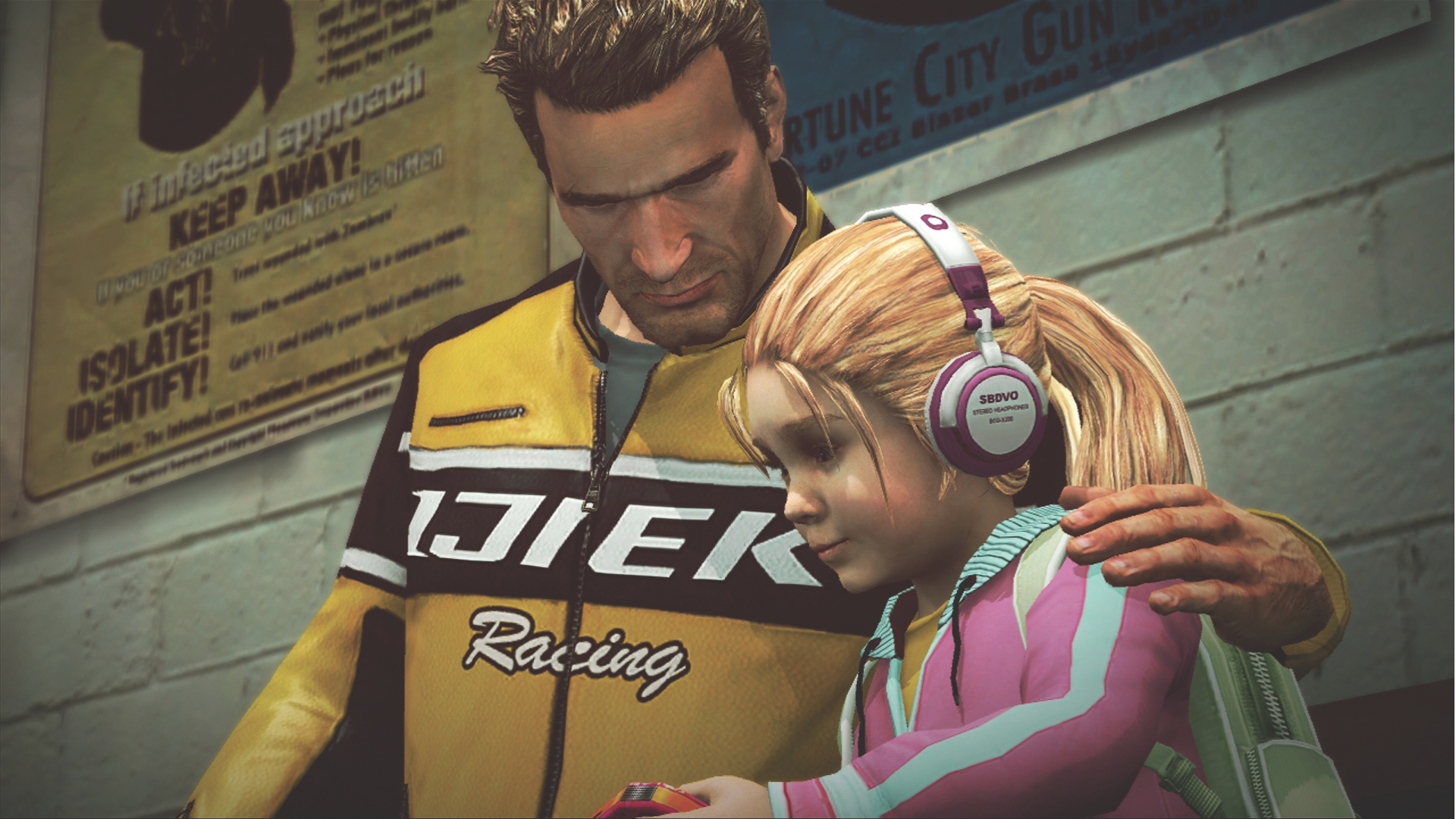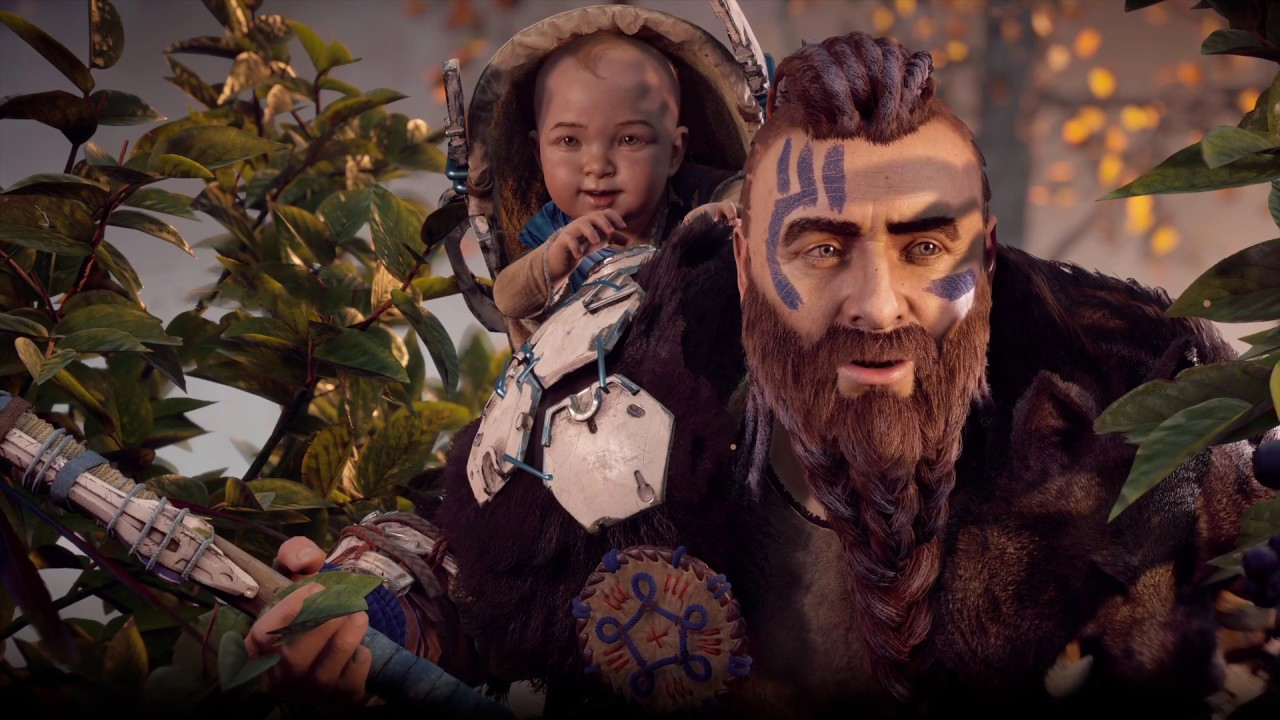The new God of War highlights the problem with parenting in video games
With the new God Of War putting father-son bonding front and centre, the question arises: can video games ever really do justice to what it feels like to try and raise a baby?

There’s a bit at the end of the original God of War that, while it even seemed a bit grimly comic at the time, I’d probably find completely unplayable now. The plot, in case you need a refresher is that Ares, the OG God of War, is trying to manipulate our blade-slinging pal into becoming his right-hand man, the ultimate warrior – he’s already good at murdering people, but also affectionate enough towards his daughter and wife that it’s apparently holding him back. So: long story short, Ares tricks Kratos into killing his family during a full-scale murder rage, and the penultimate battle sees our antihero relive the whole event by holding off hordes of clones of himself while occasionally ‘hugging’ his family back to health – he transfers them his own – with a press of the Circle button.
Back in 2005, that seemed sort of ridiculous, but basically fine. Even on paper, it probably doesn’t seem that bad. Watching it on YouTube now, it feels awful.
What’s changed? I had a baby.
In that, I’m probably not alone. The average gamer in 2017 was 35, and while that number’s probably skewed by an ageing population of Farmville fans, it’s still slightly above the average age of first-time fathers (33.2) and mothers (30.3). We’re a generation of gamers that know what it’s like – from friends and family, if not first-hand – what it’s like to deal with the whims of a squirming, squalling infant, or to try and protect a teenager from all the perils of an unpredictable world. And deliberately or not, games have followed, with the God of War reboot being just the latest to introduce some offspring into the proceedings to spice things up.

But when you actually stop and look at it, games that feature anything resembling proper parenting are pretty thin on the ground. Sure, parent-child relationships have been a ‘thing’ in games since Donkey Kong Jr. got things rolling back in 1982 with the little chap’s quest to rescue his imprisoned dad. They’re an easy way to build drama, a super-simple plot MacGuffin for when there isn’t much room on the side of the arcade cabinet, neat storytelling shorthand for when things have to matter. If the old rescue-your-daughter (or find-your-dad) trope doesn’t fit, chucking some parent-child pairings into the mix still works – in Soul Calibur and Tekken, for instance, it’s rare to find a long-standing character who hasn’t got a son or daughter ready to punch them in the mouth/toss them into an active volcano, and Metal Gear’s family tree only gets more tangled as the series marches on.
But parenting, in the decision-making, head-clutching, oh-lord-if-I-get-this-wrong- he’ll-grow-up-weird sense? That’s a bit more rare. Take Heavy Rain, for instance, oft-cited for its heart-wrenching depiction of a dad (and son) in distress, and as an example of what lengths parents will go to for their kids. It’s a fantastic game, but also really just a continuation of the rescue-your-kid theme – however passive-aggressively you set the table or play with your kids in the Prologue section, it doesn’t have any effect on how events unfold. And later, sure, you might (spoilers!) chop your finger off or kill a dude or drive into oncoming traffic or crawl through a tunnel of broken glass and electrical wiring, but it’s tough to square that with actual parenting, because it’s just what the game wants you to do, not a decision you’re consciously making about how to raise the tiny human who relies on you. The Last of Us, through its vaguely-familial vibe is one of the most emotionally resonant in gaming, presents its characters fully-formed: you’re watching the characters interact and grow to love each other, not getting much of a hand in the process.
Primal instincts
One of the first games to actually confer a bit of parental responsibility on players was Far Cry Primal prototype BC Bill on the Spectrum, which strips things back to the (disturbing, outdated) basics: first, you club potential ‘wives’ over the head to drag them back to your cave, then they have children, then you feed the children dinosaur meat until they come of age, then you die of a broken heart (in-game) when too many of the children are eaten by dinosaurs. Thematically, its closest modern descendant is probably Shelter, which (although it’s about badgers) gets the stress, multitasking and micromanagement involved in looking after your mostly-helpless offspring entirely right – the nagging sense that you’re missing something, the constant gnaw of danger around the corner, the inexhaustible affection you build for the miniature idiots following you everywhere. The modern dad might be more concerned with low coffee-table corners and unsecured shelving than birds of prey and forest fires, but the sense of responsibility is (almost) the same.
Weekly digests, tales from the communities you love, and more

Still, though. That’s parenting at its most basic – and though keep-your-kids-alive is definitely one for the checklist, it’s not going to earn you any prizes down at Bumps And Bundles. For actual nurturing options, the obvious pick is The Sims series, which handily compresses the process of rearing a fully-functioning human into a whole bunch of button clicks and 72 hours or so of game time. Once you’ve got past the point of having your children taken away by social workers/military school, later instalments do a bang-up job of mimicking the ‘thankless drudgery’ part of raising a child, from buying endless toys to changing nappies and feeding your helpless progeny – but what they don’t do so well is the joyous bits. Admittedly, these are harder to pull off – it’s much easier to programme a succession of skill-trees than recreate the genuine delight of a gurgling child – but since these moments are sort of the point of having a baby (biological imperatives aside), it does feel like they’re missing something. And while we’re on the subject: I know that, technically, you want games to feature sensible, targetable progression, it does take a bit of the terrifying randomness out of having a child when doing all the right stuff absolutely guarantees that they’ll do what you want. Sure, blind obedience is all very nice, but would you rather pick your child’s preferred traits off a sub-menu, or be surprised when they inexplicably become a vegetarian at seven or develop an overwhelming interest in the bassoon as a teenager? Actually, wait, don’t answer that one: let me come back to it in ten or so years.
So if the Sims series rips all of the fun out of risk-reward child-management, what games actually get it right? Here, you have to go sandbox. Red Dead Redemption’s father-son relationship feels like a mildly missed opportunity – given all the father-son missions the game includes, added to the different opportunities that going Hero or Outlaw affords, you’d think that setting a good example for your son might (spoilers!) stop him from growing up quite so ornery. GTA 5 does something similar: Michael gets a bunch of missions featuring bonding opportunities with his son, but no decision you make can actually change your relationship with Jimmy – though, arguably, a key point of the game is that since your old decisions are always going to haunt you, a quick swim isn’t going to fix anything. Fable 2 gets the basics of entertaining a baby right – make fart noises, pull faces – and ups the ante by including a strong possibility of your child hating you if you spend all your time off adventuring, which makes sense. But – and again, this might just be me – they’re not all that likeable.

For my money, the key to any successful emulation of parenting has to include the option to be a bad parent as well as a good one, without the choice having ramifications for you finishing the game. You have to have the option to be hopeless – or to do nice things for your offspring, not because it gets you bonuses, but because you want to see the smile on their tiny face. You have to want to help them.
And that’s why I think the best example of parenting in a video game is in… Dead Rising 2.
You think I’ve gone mad. That’s fine, I’ll explain. For the uninitiated, the setup’s pretty simple: your daughter, Katey, has been bitten by her zombie mum and needs a daily infusion of anti-zombie juice Zombrex to survive. They have to be quite carefully timed, and so your zombie-smashing fun – jury-rigging weapons together from canoe paddles and chainsaws, driving dirtbikes through the slavering hordes, trying to find the perfect jumpsuit-and-hockey- mask clothing combo – gets frequently interrupted by admonitions to get back to base with an ampoule of antidote. At first, honestly, it’s sort of infuriating. But then you start to really like Katey, and you want to make her happy. And then you realise that you can give her presents, which range from a bag of marbles to oversized toy animals and a pet tiger. And then, suddenly, because even though you earn Prestige Points for doing it you really do get enough of them elsewhere, you realise that you’re carefully toting a gigantic stuffed elephant through a zombie-infested casino while simultaneously laying a delicious trail of raw meat behind you, not because the game’s making you do it or because there’s a real, tangible benefit to you, but because you like the tiny, hopeless pretend-human who smiles at you when you do it. And then: well, you’re practically a parent. Now all you have to do is get yourself the celebratory ‘Best Dad / Mum in the World’ mug.
Want more? Read our feature on why games have a problem representing mothers and motherhood.




